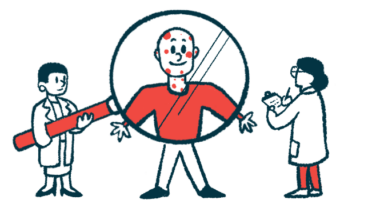LEMS Patients Can Get Financial Aid from The Assistance Fund

In recognition of the economic burden that comes with a diagnosis of Lambert-Eaton Myasthenic Syndrome (LEMS), the Assistance Fund has opened a financial assistance program to help eligible patients pay out-of-pocket medical expenses.
The Lambert-Eaton Myasthenic Syndrome Financial Assistance Program has more information on how to enroll at its webpage.
The Assistance Fund is an independent patient assistance charity based in Orlando, Florida, that helps patients with serious and chronic diseases get the financial help they need to cover medical costs.
LEMS is characterized by muscle weakness caused by a reduction in the neurotransmitter acetylcholine (ACh) released from nerve terminals. This decrease impairs the communication of nerve cells and muscle cells at the neuromuscular junction, the site where nerve cells meet muscle cells, triggering muscle activation.
The outcome is overall muscle weakness and fatigue, particularly in the thighs and pelvic area.
While currently without a cure, the U.S. Food and Drug Administration recently approved Firdapse (amifampridine phosphate), developed by Catalyst Pharmaceuticals, for adults with LEMS, making it the first approved therapy in the U.S. for the condition.
Firdapse, administered as a tablet, is a neuronal potassium channel blocker that leads to the opening of slow voltage-dependent calcium channels, allowing for an influx of calcium.
The therapy also induces the secretion of synaptic vesicles to release more ACh, enhancing the communication between nerve and muscle cells and thereby improving muscle function.
This and other therapies, however, can be extremely costly for LEMS patients. Recognizing this burden, the Assistance Fund has decided to include LEMS in its list of covered diseases.
“LEMS has a significant impact on an individual’s quality of life and can make actions such as walking upstairs a challenge,” Mark P. McGreevy, president and chief executive officer of The Assistance Fund, said in a press release. “For those living with this disorder and associated underlying conditions, we recognize the importance of accessing proper medical care and treatment.”






